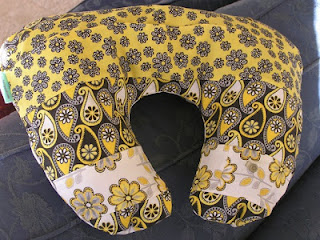.JPG) |
| what Parkes is most known for - The Dish |
I spent my whole childhood in Parkes, and only left to go to
university in the Big Smoke of Sydney, but ended up staying there for work. My
mother still lives in Parkes, and sees no reason why she should leave. My
father was born there, and only moved away to go to teacher’s college, then to spend
several years learning his craft at various schools around NSW. I think the
biggest school he taught at was when he came back home and was at Parkes
Primary. He taught in a lot of small country towns – I mean small as in he was
the only teacher! Mum and Dad did spend a year on a teaching exchange in New
Zealand, but even then, the place they went to was a small country town.
One constant topic of discussion in our small country town
was how to keep the town alive. I can’t remember exactly, but back then, I
think the concern was of what to do if the farmers couldn’t make a living, with
the price of wheat and wool being so low. The flow on from this would be that
the farmers would not spend money in the town, businesses would go bust, and
the young people would leave the town to make a living in the city..jpg) |
| view of Parkes from Memorial Hill |
Parkes was lucky, in a way, because a few things happened
that meant the town has survived, and grown, in fact. Population now is around
10,000. Parkes was settled originally because of gold. Gold mining didn’t last
all that long back then, but the farmers came along, and the town kept going.
But just when farming might no longer support the town, improvements in mining
techniques meant that a mine could be opened.
Add to this the Elvis Festival, and Parkes was back on the
map!But not much has really changed, all these years later. There is still the discussion – what about when the mine stops? And how long can Elvis keep pumping money into the local economy?
As time goes on, I think it gets harder to find answers. We
are trying to balance the needs of so many – how do we campaign against a mine,
when not having the mine means the town will die?
 |
| view along the Bylong road |
I was thinking about all this on the weekend when we were
driving back to Bathurst through the Bylong Valley. We stopped for lunch at
Kandos, which only exists because of the existence of limestone in the area – Kandos
was established by Cement Australia when they started quarrying the limestone
and making it into cement.
The quarry was shut down in 2011. But the town still
survives. Now, the population of the town is just over 1,000. The town sees
itself as the gateway to the Wollemi National Park. The surrounding area, in
fact the whole Bylong Valley, is a beautiful place. Again, though, it is
fighting for survival.
 |
| another view along the Bylong road |
Mining wants to come to the area. The locals don’t want it
to (Bylong Valley Protection). But how could a town like Kandos survive without it? No quarry, anymore, so
without the mine, how could people stay?
Having driven through the valley, I can see why the locals
don’t want the mine – that beautiful landscape would be destroyed. Having had lunch
at Kandos, I can see why they think they can survive without the mine. We ate
in a lovely café that was the old railway station, converted into a café, bar,
shop. That was only one of several cafés in town. And going by the number of
brochures about things to do in the area, things are going along just fine.
Country towns seem to always be fighting for survival. But
if Parkes and Kandos are anything to go by, there is always a way for them to
keep going, if only the people who live there care enough to make it happen. We
asked the person behind the counter in another of the cafés in Kandos what
keeps the town going. Her reply? Love.Country towns are such interesting places. I desperately hope they can continue to survive.







